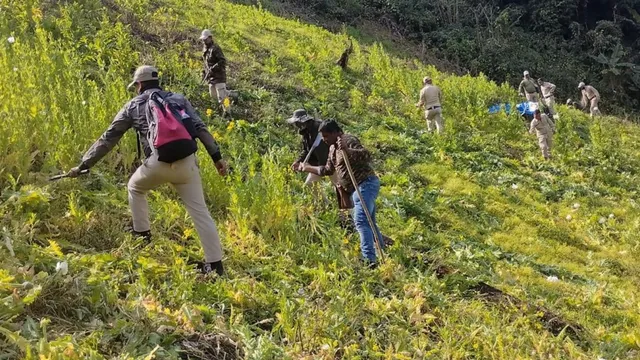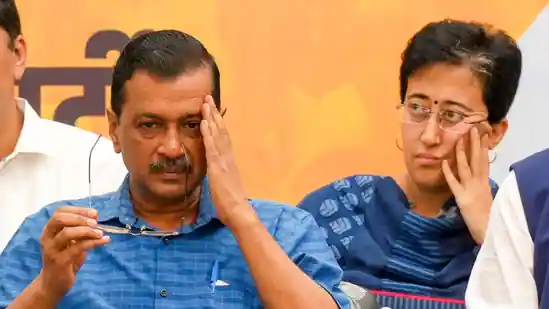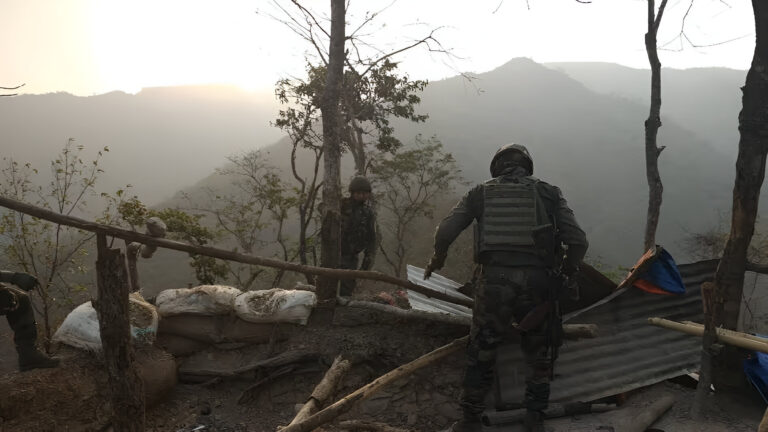Manipur SDSA Accuses Assam Rifles of Facilitating Militant Movement: Analyzing the Allegations
Summary
In a recent controversy, the Senapati District Students’ Association (SDSA) in Manipur has accused the Assam Rifles of aiding militant movement in the region. The student body has raised serious concerns regarding the alleged facilitation of insurgents, demanding clarification from the security forces. This development has intensified debates surrounding security operations in Manipur, highlighting deep-seated tensions between civilian organizations and law enforcement agencies.
Long Article
Introduction
Manipur, a state with a history of insurgency and complex security dynamics, has once again found itself at the center of a controversy. The Senapati District Students’ Association (SDSA) has made strong allegations against the Assam Rifles, accusing them of assisting militant movements in the region. These claims, if true, could have serious implications for law enforcement credibility and regional stability.
What does this mean for Manipur? Is there any truth to these allegations, or is it a misunderstanding fueled by deep-seated mistrust? Let’s break down the issue, analyze its potential consequences, and explore the broader implications.
Understanding the Allegations
The SDSA has accused the Assam Rifles of actively facilitating the movement of militants within Manipur’s Senapati district. According to the student body, there have been multiple instances where security personnel allegedly allowed armed insurgents to pass through checkpoints without scrutiny.
What Sparked the Accusations?
The allegations stem from recent reports of militant movement in the region. SDSA claims to have credible information that the Assam Rifles provided safe passage to insurgents, which, if proven, could indicate either intentional complicity or operational negligence on the part of the security forces.
SDSA’s Demand for Clarification
The student organization has officially called upon the Assam Rifles to explain their actions. They seek transparency and accountability, emphasizing that such alleged misconduct compromises the safety and trust of the people in Manipur.
The Role of Assam Rifles in Manipur’s Security
To understand the gravity of the accusations, it’s essential to examine the role of Assam Rifles in Manipur’s security landscape.
A Key Player in Counter-Insurgency
The Assam Rifles, often dubbed the ‘Sentinels of the Northeast,’ have been actively involved in counter-insurgency operations for decades. Their presence in Manipur is aimed at curbing militant activities, preventing arms smuggling, and maintaining law and order.
Historical Tensions with Civilian Bodies
Despite their strategic importance, the Assam Rifles have had a complicated relationship with local organizations. Over the years, there have been multiple allegations of misconduct, human rights violations, and even collusion with insurgent groups. This latest accusation by SDSA adds another layer to the ongoing friction between security forces and civilians.
Possible Implications of the Allegations
If these accusations hold any merit, the consequences could be far-reaching. Here’s what could happen next:
1. Increased Distrust Between Civilians and Security Forces
Manipur’s security forces already operate in a challenging environment where public trust is fragile. Allegations like these further widen the gap between law enforcement and the people they are meant to protect.
2. Political and Legal Ramifications
The issue could escalate into a political controversy, prompting government intervention. If an investigation is launched and finds evidence of wrongdoing, legal action against those involved might follow.
3. Strengthened Militant Activities
If Assam Rifles personnel were indeed facilitating militant movement, insurgent groups might gain an advantage. This could lead to an increase in attacks, kidnappings, and destabilization efforts in the region.
4. Stricter Security Measures
In response to these allegations, security forces might impose stricter surveillance and roadblocks, affecting daily life for civilians. The government might also introduce new policies to improve oversight and accountability within the armed forces.
The Bigger Picture: Insurgency and Governance in Manipur
Manipur has been grappling with insurgency for decades. The state’s security apparatus is a complex web of military forces, paramilitary units, and police teams working to curb militant activities. However, such efforts are often met with resistance from local bodies that view them with suspicion.
Why Is Manipur a Hotbed for Insurgency?
Several factors contribute to insurgency in Manipur:
- Ethnic and Political Tensions: Clashes between various ethnic groups create an environment of unrest.
- Geographical Challenges: The proximity to international borders makes it easier for militants to smuggle arms and seek refuge in neighboring countries.
- Lack of Economic Opportunities: High unemployment rates and economic hardships push some individuals toward insurgency.
What Comes Next? Potential Solutions and Future Steps
The controversy surrounding the Assam Rifles and the SDSA’s allegations highlights the urgent need for more transparent and accountable security operations. Here’s what can be done:
1. Independent Investigation
To ensure fairness, an independent body should investigate the claims made by SDSA. If any wrongdoing is found, appropriate action must be taken against those responsible.
2. Strengthening Civil-Military Relations
Building trust between civilians and security forces is crucial. Organizing community engagement programs, transparency initiatives, and regular dialogue can help bridge the trust gap.
3. Revising Security Protocols
If Assam Rifles personnel are indeed found to be complicit, security protocols should be revisited to prevent such incidents in the future. Strict monitoring and accountability mechanisms must be put in place.
4. Addressing the Root Causes of Insurgency
The government must focus on long-term solutions, such as:
- Providing better economic opportunities to youth to prevent them from joining militant groups.
- Implementing stronger border security measures to curb arms smuggling.
- Enhancing intelligence-sharing mechanisms between different law enforcement agencies.
Conclusion
The allegations by SDSA against Assam Rifles have sparked a heated debate about security operations in Manipur. Whether these claims are valid or not, they highlight the deep-rooted tensions between the people and the forces responsible for their protection. Moving forward, transparency, accountability, and community engagement will be key in ensuring peace and stability in the region.
As the situation unfolds, all eyes will be on the response from the government and Assam Rifles. Will they clarify the accusations, or will this become another chapter in Manipur’s complex security narrative? Only time will tell.
FAQs
- What are the main allegations made by SDSA against Assam Rifles?
SDSA claims that Assam Rifles facilitated the movement of militants in Manipur, allegedly allowing them to pass through security checkpoints unchecked. - Has the Assam Rifles responded to these accusations?
As of now, there has been no official statement from Assam Rifles addressing the allegations. - Why is this issue significant for Manipur?
The accusations highlight ongoing tensions between security forces and civilians, impacting public trust and regional stability. - What actions might follow these allegations?
Possible outcomes include an independent investigation, stricter security measures, and potential government intervention. - How can the trust between civilians and security forces be improved?
Transparent security operations, regular dialogues, and community engagement programs can help bridge the trust gap.



